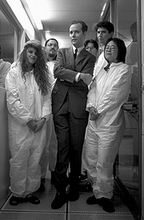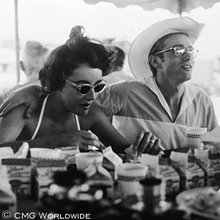

Watched François Truffaut's stunningly beautiful, profound and lyrical The 400 Blows tonight. I was very moved by this film, so moved that I had a lump in my throat during my entire drive home. I was surprised by this, having seen other French New Wave films, and leaving them with a complete sense of detachment from the protagonists, maybe even a repulsion for these new fashioned anti-heroes (of course, this was, I guess, intentional--a reaction against the sentimentalization of Hollywood's fuzzy character studies). But Truffaut's tender portrait of an estranged, ignored, displaced young boy is one of the most convincing and poignant depictions I have seen anywhere. Nothing seems overdone--and although the filming is extremely stylish and crisp, its profound, painful reality is somehow devastating. The ending scene--a freeze frame in which we see the fresh, yet weathered face of Antoine--the face of a CHILD--is one of the most beautiful I have ever seen. Although he has found his "freedom", he has nowhere to go--and we realize that his deepest desire is not, and never was, for freedom. This beautiful scene also recalls the end of La Dolce Vita--the untarnished shot of Fellini's daughter (a vision of innocence that is unattainable for the Marstrioni character). In the end of The 400 Blows we are aware that, tragically, the young protagonist has already been alienated from his own innocence. This film is profoundly spiritual--it made me, for a few moments, recognize how much I love people, but need to love them even more by recognizing the complexity of each human experience. I was challenged, moved, and I hope that, even in the slightest way, transformed.































